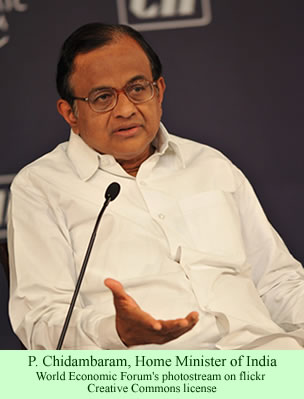Anyone interested in the welfare of the peaceful Ladakhis should realize that a fair political settlement of the divisions and conflicts in India’s state of Jammu and Kashmir will promote the continuing stability and health of Ladakh. The state, located in India’s north and bordered by Pakistan and China, has been riven with discord and violence for decades, much of it caused by complex, cross-cutting demands and factions that try to advance their own agendas, often to the disadvantage of other groups.

A blue-ribbon panel of prominent Indian citizens, appointed last October to explore possible solutions to the Kashmir problems, submitted its report to Home Minister Palaniappan Chidambaram on Wednesday last week. Mr. Chidambaram, as well as the members of the panel, agreed to keep the details of the report confidential for a short time until he had had the chance to study it. This has not stopped the press from speculating about the contents of the report, based on confidential sources who may, or may not, really know the contents of it.
The big question that everyone is speculating about is how much, if any, autonomy has the report suggested for Kashmir, Jammu, and Ladakh, the three constituent parts of the state. Referred to as interlocutors, the three panelists, Dileep Padgaonkar, Radha Kumar, and M. M. Ansari apparently tried to suggest a balance between the self rule advocated by the partisans of Kashmiri independence and more moderate demands for autonomy.
Most of the news sources concur that the report suggests some sort of internal autonomy for the Muslim Kashmir portion of the state, and regional councils for Jammu, the Hindu portion, and for Ladakh, the partially Buddhist and partially Muslim section. The national government is not committed to implementing the report, but the fact that the Home Minister himself appointed the three interlocutors will give their findings some standing.
One news source, claiming to have “accessed” the report, said that it calls for the Armed Forces Special Powers Act to be reviewed, and for a gradual withdrawal of the armed forces from parts of the Valley of Kashmir. The Valley is where the majority of people in the state live, and it has been the location of a lot of separatist violence. Supposedly, the report steers clear of supporting complete autonomy, though it apparently does suggest some sort of compromise.
The People’s Democratic Party, a Muslim group that openly advocates a role for Pakistan in administering at least a portion of the state, took a fairly moderate stance about it. “We look forward to the report, but apparently, it falls short of the expectations,” said Naeem Akthar, leader of the PDP. He promised that his party would examine it carefully and then respond.
Another news story indicated that the report focused on enhancing job opportunities and economic development in all three parts of the state. This source learned that the report was suggesting a 51 percent formula of development funds for Kashmir and Ladakh, and 49 percent for Jammu. This allocation formula would supposedly address resentments in both the Kashmir and the Jammu regions about the locations of government projects.
The panel, apparently, has recommended reducing the visibility of the armed forces in urban areas. This would be accomplished by removing some of the cities from the list of special disturbed areas that are designated in the Indian law. Padgaonkar, the chair of the panel, indicated that he and his colleagues had taken testimony from 600 different delegations, in 22 districts of the state, plus three round-table conferences and three mass meetings. He felt that the report represented “the most accurate, comprehensive and broadest possible spectrum of opinion from Jammu and Kashmir.”
Padgaonkar said that the panel had completed its work within the time frame, one year, established by the Home Minister. He added, “The mandate was to try and trace contours of a political settlement. This is what we have proposed. We have traced [the] contours. We have made [a] certain number of recommendations which aim at [a] permanent settlement of [the] issue of Jammu and Kashmir.”
He added that the panel hoped their work will help the nation at large to arrive at a consensus regarding the issues of equity, autonomy and development in the state. Padgaonkar said that the key to the resolution of the continuing crisis regarding Jammu and Kashmir was for everyone to concentrate on the welfare of the people themselves.
He was asked about the refusal of the separatists to cooperate with the panel, or even to meet with them. He replied that their stated positions are reflected in the wording of the report. “The fact of the matter is, we tried and tried again and they refused. I believe they have missed the bus,” he concluded. As news stories indicated when the panel was appointed, the separatists believe that theirs is the only possible solution to the Kashmir issue, and they made it clear at the time that they didn’t intend to budge from their intransigence.